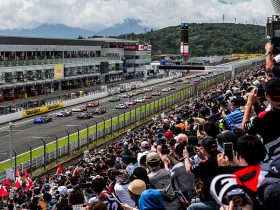If you’re like most boat owners, you want to keep your vessel in the best possible condition. That means finding the right storage solution to fit your needs. But with so many options on the market, it can be tough to know where to start. Should you go for dry or wet storage? To help you make the best decision for your boat, we’ve put together a quick guide to the pros and cons of each option.
Dry Boat Storage and its Benefits
Dry boat storage is one of the most popular options for boat owners. It is a facility where your boat is kept on land, either on a trailer or in a garage. Dry storage offers several benefits, including:
- Protection from the elements: Perhaps the biggest advantage of dry storage is that it protects your boat from the elements. Whether it’s sun, rain, or snow, your boat will be safe and sound inside a dry storage facility.
- Increased security: Most dry storage facilities are located indoors, which means your boat will be less likely to be vandalized or stolen.
- Reduced wear and tear: When your boat is stored in a dry environment, there’s less chance of it sustaining damage from the elements. That means it will be in better condition when you’re ready to take it out on the water again.
Wet Boat Storage and its Benefits
Wet boat storage is a method of storing your boat in the water. This can be either in a marina or at a private dock. Wet storage has a number of benefits, including:
- Convenience: If you live near a body of water, wet storage can be a very convenient option. You won’t have to trailer your boat to and from the marina every time you want to go for a sail.
- Reduced wear and tear: Because your boat is constantly in the water, there’s less chance of it sustaining damage from exposure to the elements.
- Better for the environment: If you’re worried about the impact of boat ownership on the environment, wet storage is a more eco-friendly That’s because boats kept in the water are less likely to leak oil and other pollutants into the ground or waterways.
Which Storage Option is Right for You?
Now that you know the pros and cons of dry and wet storage, it’s time to decide which option is right for you. If you’re not sure where to start, here are a few questions to ask yourself:
- How often do you use your boat? If you only take it out a few times a year, dry storage might be the best option.
- Do you live near a body of water? If you live far from a lake or ocean, wet storage might not be practical.
- What is your budget? Dry storage is typically more expensive than wet storage, so keep that in mind when making your decision.
- What are your priorities? If protecting your boat from the elements is your top priority, dry storage is probably the way to go. But if convenience is more important to you, wet storage might be a better option.
Considering the above, decide which storage option is right for you and your boat. If you’re still unsure, talk to a professional about which option would be best for your situation. They will be able to give you more specific advice based on your individual needs.
Wrapping Up
No matter which storage option you choose, the most important thing is that your boat is safe and sound. So do your research and choose the option that best suits your needs. You may even check out services for boat storage in the Florida Keys to help you decide and find the best storage option for you and your boat.





